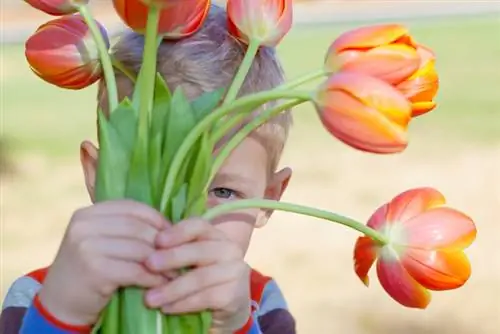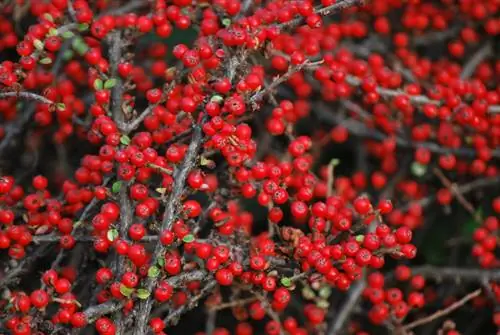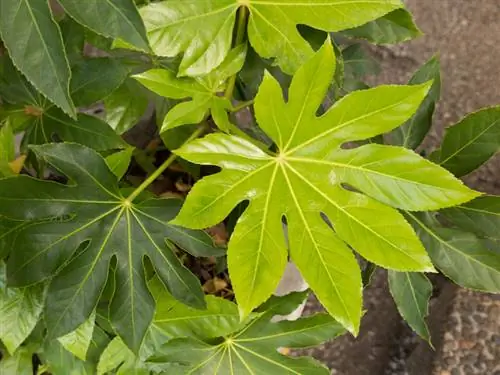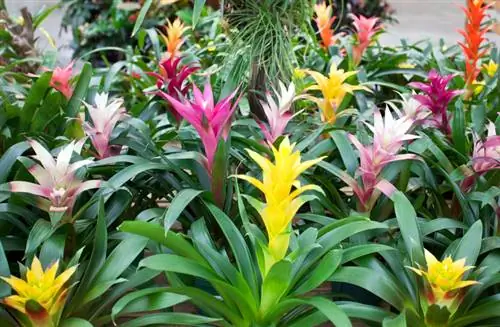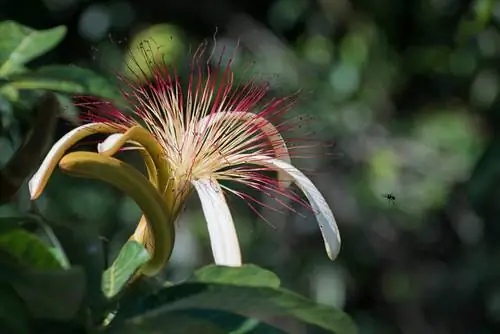- Author admin [email protected].
- Public 2023-12-16 16:46.
- Last modified 2025-01-23 11:20.
Given the breathtaking splendor of a blooming tulip bed, suspicion about the poison content is certainly warranted. The colorful spring flowers are not completely harmless. Read all the information here to be able to correctly assess the toxicity of Tulipa.
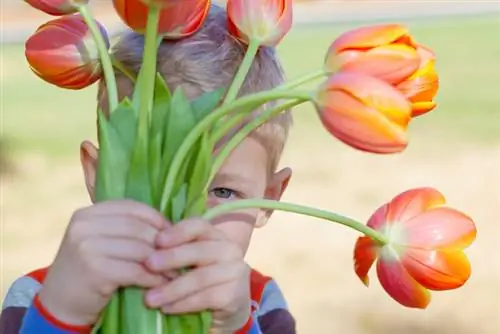
Are tulips poisonous to people and animals?
Tulips are slightly poisonous due to the toxin tulipanin they contain. This can cause irritation and inflammation when it comes into contact with the skin and can lead to symptoms of poisoning if tulip bulbs are consumed. Tulip flowers, on the other hand, are edible and harmless.
Tulipanin irritates skin and stomach
Tulips contain, among other things, the toxin tulipanin, which is found in all parts of the plant. The toxin exerts its harmful effects both externally and internally. These he alth problems can be expected when handling tulips:
- Excema-like irritations form upon contact with the skin, in conjunction with inflammation and cracked areas of skin
- Intentional and unintentional consumption of tulip bulbs causes symptoms of poisoning
- Larger amounts cause vomiting and cramps and even respiratory arrest
There is a danger to people and animals. Dogs, cats, rodents and horses in particular suffer severe stomach and intestinal problems when even small amounts are consumed orally.
Safety first
The most common cause of poisoning is mixing up tulips and onions. Please store both types at a sufficient distance. You will be spared from tulip dermatitis if you carry out all planting and care work with gloves (€9.00 on Amazon). In addition, pets and horses should not come within reach of tulips.
Flowers are edible - so are individual tulip bulbs
Since the toxin is concentrated in tulip bulbs, the all-clear can be given for the magnificent flowers. The distinctive floral cups have long since found their way into the modern kitchen. With their bright colors, tulip flowers add a culinary touch to salads, sweet and savory dishes.
You can also prepare and taste one or two tulip bulbs without worry. Up to 4 flower bulbs are safe for an adult as long as they come from organic farming. In fact, tulip bulbs saved thousands of people from starvation in Holland during World War II.

